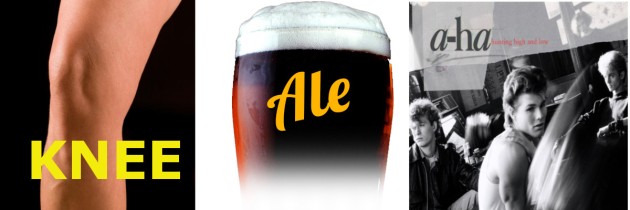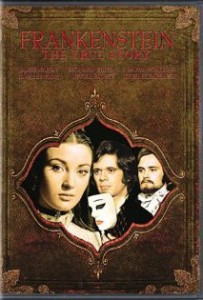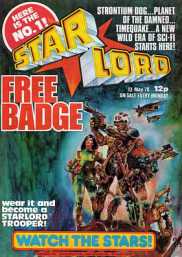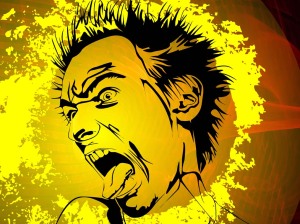 Even sober, Fantasycon can be a dizzying barrage of personality, conversation, information and recreation. Add alcohol into the mix—which only the tee-total can fail to do—and it can become an almost psychedelic experience.
Even sober, Fantasycon can be a dizzying barrage of personality, conversation, information and recreation. Add alcohol into the mix—which only the tee-total can fail to do—and it can become an almost psychedelic experience.
The events described here happened. Not necessarily in this order, and there may be gigantic gaps where fascinating things and people did happen and I have no recollection of them.
The bar was dead when I arrived at 11am. The few people in there were drinking coffee, of all things, and I admit to being shamed into doing the same. It was going to be a late night, and a little caffeine wouldn’t hurt at all. I sat and sipped coffee as though I were a real, functioning person, and enabled Facebook on my phone for travel updates on all the fine folk who were making their way here.
Eventually, James Everington arrived, and the three day long party was underway. James is a great guy, and a very fine writer, so I was pleasantly surprised when the launch of the Masks anthology happened right beside me. This year’s book buying virginity was therefore lost a little earlier than expected, but I became the happy owner of Masks, an antho containing work by James, and another of my friends and all-round good guy, Phil Sloman (more of him later). Plus I got to chat for a little while with editor extraordinaire Dean Drinkel, which was dandy—although I was sad to hear of the passing of cover artist James Powell. I’d been praising his work on many of Dean’s covers.
James and I headed down to register for the con, as we’d been told of the mountainous pile of free books available. We received our badges, then ran around like a couple of kids in the sweetie aisle, oohing and ahhing, and grabbing stuff like we were on Supermarket Sweep. “Read anything by her? She did that great story in…”
After dumping my haul in the car, I met up with the inimitable Mark West, romance writer Sue Moorcroft (who deserves congrats for her recent two-book deal with Avon), Stephen Bacon and Neil Williams. I read an article once, about how human relationships closely mirror the setup of electronic peer to peer networks. Certain people act as supernodes, with an uncanny number of connections that the rest of the system relies upon for efficiency. I always think of Mark as a supernode, and he has gained that status by being the nicest, friendliest person you could meet, and a superb writer to boot (hence his much deserved BFS award nomination for Drive).
At some point, a few drink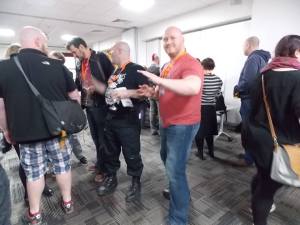 s later, I was pleased to see Ross Warren and his lovely sister Lisa Childs. Ross Warren—yet another wonderful guy. You’ll never hear him bigging himself up, yet he’s a top notch editor with some superb titles under his belt, not least of which is the Dark Minds series. He also writes a mean short story too. If you haven’t already, look him up.
s later, I was pleased to see Ross Warren and his lovely sister Lisa Childs. Ross Warren—yet another wonderful guy. You’ll never hear him bigging himself up, yet he’s a top notch editor with some superb titles under his belt, not least of which is the Dark Minds series. He also writes a mean short story too. If you haven’t already, look him up.
One of the highlights of the convention was the launch for Mark West and Stephen Bacon’s Lost Film novellas. Launch? This was more like a party, with everyone there thrilled to be supporting two excellent writers, and one of the nicest (and most professional) publishers in the biz (yes, you, Christopher Teague!). The drink was flowing. I think Sue Moorcroft was on photo duties, and you can see in the resultant pics the love and laughter of the event. Here I received an effusive man-hug from Paul M. Feeney (great writer—buy Weight of the Ocean and The Last Bus), and spent time laughing and chatting with Fiona Ní Éalaighthe—the topic of which neither of us can now remember. Although I seem to have photobombed every pic, like a weird creature from an internet meme, I have no recollection of any of the photos being taken. Mark and Stephen gave brilliant readings though, and I was worried they were going to run out of copies when it came time to buy. Well done to all concerned.
 We all headed off to the local Toby Inn for a meal, Mark, Sue, Lisa, Stephen Bacon, Wayne Parkin and Peter Mark May, and were a little taken aback by how good the food was, as well as being reasonably priced. They offered normal or King Sized options, so I asked for an Henry VIII portion. Fcon to me is all about excess. Bacchanalia featuring oversized talents, oversized hospitality, oversized friendliness, and oversized portions of food and drink.
We all headed off to the local Toby Inn for a meal, Mark, Sue, Lisa, Stephen Bacon, Wayne Parkin and Peter Mark May, and were a little taken aback by how good the food was, as well as being reasonably priced. They offered normal or King Sized options, so I asked for an Henry VIII portion. Fcon to me is all about excess. Bacchanalia featuring oversized talents, oversized hospitality, oversized friendliness, and oversized portions of food and drink.
We got back for the Atrocity Exhibition, a Victorian quiz panel and half laughed, half marvelled at how well Mark West coped despite having not a clue beforehand of what the panel would entail.
Things are now getting blurry. I know I ended up outside at some point and was introduced to Ben Jones. Ben’s a proper geezer from Sarrrf Landon, an author so enthusiastic about his work and characters that I was sold straight away. I came back with Skewered and Pennies for Charon, which I’d read great reviews about, and almost immediately bought Slaughter Beach when I got home. This guy could sell crack cocaine to the Jehovah’s Witnesses, and was a great laugh. I raise a glass to you, sir!
At last, I met up with my best buddies Stephen King and Katina Bill, whom I first met at Fantasycon in 1989, and we’ve been firm friends since. We’ve holidayed together, drank together, stayed at each other’s homes—a testament to the bonds that can be formed at this convention. I say met—if my memory serves they dragged me kicking and screaming into the karaoke, where I joined them and my other great friends Laura and Peter Watkinson. Laura won the Vondel Translation Prize 2015 for The Letter for the King, her translation into English of De brief voor de koning by Tonke Dragt), and Peter is the one-man blackened death metal god behind the awesome Abomnium.
After an enforced removal from the conference centre—they have tannoy announcements, which no matter what the actual script, always seem to say “you have 15 seconds to reach safe minimum distance” in my head—it was time to retire to the hotel bar and get comfy. After 12 hours drinking, I found that my friends had at some indeterminate point dispersed and drifted off to bed. No matter, because I found myself in the fascinating company of excellent scriptwriter, filmmaker, and past con-friend Gavin Williams. Gavin is calm, intelligent, and expressive, as well as being very talented, just what is needed to level the head after a hard day’s debauchery. He patiently answered all my dumb-ass questions about the film business, of which I knew not a jot until our discussion. If you get a chance to watch his short, Sleepworking, I wholeheartedly urge you to do so, and his current project as screenwriter, Await Further Instructions, with Game of Thrones, Harry Potter, The Strain, and Broadchurch star David Bradley, sounds excellent.
As more and more people drifted off to bed, it was left to me and fellow bar-propper Paul Melhuish to hold the fort. This must have been 2 or 3am. Much bullshit was spouted, amidst the interesting topics of books read and bands watched. We even got onto world religion at one point (Paul’s a Christian, I’m an atheist) and had a thoroughly pleasant, level headed discussion without getting heated even once (take note, world governments). Paul is also a great writer, and I really enjoyed his space opera cum hammer horror, Terminus.
At some point I remember saying goodnight to the king of werewolf fiction, Graeme Reynolds. Paul went to bed, I finished my drink, and looked around for some other poor suckers whose conversation I could hijack. But there was no one left. At 4am I turned in, having wrung the last drops of goodness from the day.
I don’t suffer from hangovers, but I woke up next morning feeling like a JCB had driven over my head. Met Katina Bill and Steve King for brekkie, and she suggested that the fact I hadn’t drank anything non-alcoholic for nearly twenty-four hours may have something to do with it. And right she was. A couple of glasses of water and an Appletise later and I was ready to face the day. I had to drive into town for cigarettes anyway, so promised myself I wouldn’t drink until I’d straightened out enough to drive.
At Adam Nevill’s launch for Lost Girl (which looks superb) I bought a book and took a freebie Devonshire beer with the express intent of giving it someone to guard for me until I’d returned from the shops. However, mingling and talking in a room full of great people meant that automatically, before I’d even realised what was happening, the beer was gone, and I’d be walking to the shop later, in the pissing rain. The wages of sin. Adam’s launch was a great success—another happy, smiling party where it looked like they were going to run out of books. And well done to Adam for his much deserved award win!
After the launch came another of my ‘con highlights. Big Jim McLeod was ambushed by a bunch of writers who’d killed him off in an exclusive, one-off, short story collection—a reaction to a FB post he’d once posted. I was thrilled to be included in this. I’d already killed him in my current work, although off-stage, and so knocked up a story, from a child’s eye-view, as a bit of a laugh. When I saw the calibre of my fellow contributors, I was mortified! Jim’s reaction was priceless, and he nearly had me in tears too—somewhat of a surprise, as generally, I don’t do tears. This was the brainchild of Phil Sloman, who really is one in a million.
Next it was out to the bar. While making notes before writing this, all I have for this period is ‘???’ which is rather unhelpful. I know I was in the good company of Ross and Lisa, and that I bumped into quite a few people up and down corridors, and shared many drinks, smokes and discussions. I think it was at this point I visited the dealer’s room. I went in to buy, but ended up gabbing with the many friendly and talented people in there (Kit Power, who was gracious enough not to remark on my Wolvo accent, Rich Hawkins, Paul Feeney, Andrew Freudenberg). Fiona Ní Éalaighthe introduced me to the delights of Lemon Sherbet Vodka (but the Vodka Gummy Bears had all gone).
I returned to the bar for more drinks, and then after a while there appeared to be only me and Lisa left to duck into James Everington’s panel on British horror, which he moderated masterfully. I had to rudely get up and leave at one point, as I received a silent, missed call from my babysitters. I was worried that something bad may have happened, but they gleefully informed me my daughter was fine, and currently figure skating around their kitchen in her Heeleys. Panic over, I snuck back in. Hope those creaky steps didn’t spoil anyone’s enjoyment.
Later, I attended Terry Grimwood’s fantastic panel on weirdness, darkness and madness. The discussions on the supernatural (or lack of it) set us up for a few conversations throughout the night. I was on my very best behaviour, as Ramsey Campbell and his wife sat next to me. I know from past cons that Ramsey doesn’t suffer fools gladly, so I sucked my cider quietly like a good boy. Ramsey smiled and nodded afterwards, so I think I got away with it.
Soon it was time for Currycon, and about 30 of us walked to Beeston like a gang of football thugs, chatting about books, films and the supernatural rather than chanting vaguely threatening inanities.
Currycon broke the restaurant. Despite pre-booking, they just weren’t prepared for a party of 30 hungry writers and artists. The whole thing degenerated into farce, with waitresses knocking into each other, the sound of smashing plates every 15 minutes, some of the party (our table *grins*) served without fuss while others waited for over two hours for their meal.
I was lucky enough to share my table with Terry Grimwood, Stuart Young, John Travis, Simon Clark, and Jay Whittle (whose shirt I got to stroke) and we had a great laugh about books, authors and urban legends. I often bump into Simon Clark at cons, and I’m always impressed by what a downright nice, decent and affable bloke he is. Despite his writing credentials, he always has time for a chat with a non-entity like me. If you haven’t read him, he has a phenomenal body of work which is well worth your attention.
Special mention needs to go to Phil Sloman, for service above and beyond the call of duty, organising and overseeing the brilliant “Jim McLeod Must Die” project, and taking on the stress and headache of booking curry for 30 people, with attendant squabble and negotiation in getting the restaurant to deliver. Trooper, great guy, and if you see his name in an antho, buy it!
It was nice to see when I returned that some people were more drunk than I was. Another hazy period, but I do remember bumping into Jim McLeod and Emma Audsley outside, who’d patched up their differences and were telling me about stealth and intrigue in the reviewing world. I left them in good spirits, and looked for someone to buttonhole, happily bumping into my besties Katina, Steve, Laura and Peter. I managed to drag them all, except Steve, to James Everington’s reading. He was excellent, and they bought copies of his collection Falling Over (and so should you). I write horror/ adventure thrillers where people run around and do shit, and I had to confide in Katina that I was secretly jealous of people like James who were ‘real’ writers, with a flair for beautiful, poetic language. But there’s a place for every style, and that’s what I think is so great about the genre at present.
Outside, we’d lost Steve, and the corridors were suspiciously bare, as though something demonic had been stalking the halls, abducting attendees. There was such a demon, and its name was Fantasycon Disco.
I hate discos with a passion. But I’m so glad they have one at Fcon, because when I poked my head in the room (searching for the elusive Steve), the dancefloor was full of people whooping it up and having a great time—it was lovely to see, and it made me smile. Wishing them well, and before that stuff you call music could rot my brain through both earholes, I made my way to the bar, where I spent the rest of the evening with good friends and smuggled booze.
At some point, the tannoy announced it was time to reach safe minimum distance, and I headed up to the peaceful hotel bar for more conversation, this time with the most excellent writer, and long-time friend, John Travis—another ‘real’ writer, with beautiful robust prose that accentuates his surreal, dark fiction. Read The Terror and the Tortoiseshell for the noir adventures of a mutant cat detective! Despite our worlds-apart in style, we’d both been experiencing weirdly similar issues with our current work, and it was nice to talk it out with a great guy.
We were later joined by my fellow barfly, Paul Melhuish once more, and talk turned to music. We all got on like a house on fire, and the vagaries of British Summer Time gave us an extra hour of bar time. It was 4am (5am real time) before the guys left. I vaguely considered joining the other smattering of diehards in the bar, but with three hours sleep in nearly 48 hours, my eyes felt like they were filled with sand, my body felt like not-quite-dead roadkill, and there was some insane chemistry experiment with acid going on in my gut. I staggered to my room (the closest one to the bar in the whole hotel, yay!) and collapsed into bed.
Four hours later, I was up and about, and met another bestie, Terry Grimwood, for breakfast. Terry is one of my favourite authors, he runs The Exaggerated Press, and has written one of my favourite books ever—the dystopian masterpiece Bloody War. Another essential writer if you haven’t tried him already.
I said a sad goodbye to Katina and Steve, Laura and Peter, who were leaving early, and headed for the dealer’s room. Had a lovely chat with Jan Edwards, and picked up Kneeling in the Silver Light (Great War stories that I’d been after since it was published), from her and Peter Coleborn’s excellent (and award winning) Alchemy Press. Here I bumped once more into the wonderful Fiona Ní Éalaighthe, who now had a stock of the awesome Vodka Gummy Bears (excuse the text-speak, but OMG!). And while we’re on the subject, thanks to Jim McLeod for clarifying the pronunciation of Fiona’s surname, NEE-ALE-AHA. My mom’s Irish, and even she can’t pronounce it. Repeat after me:
I then spent a stupid amount of time bending Terry Grimwood’s ear at the Eibonvale Press table, before meeting up with nervous nominee Mark West, Sue Moorcroft and John Travis, to head for the awards.
Juliet McKenna handled the awards brilliantly, not too short, not too long. I’m still catching up on reading from eight years ago, so I was somewhat surprised to find that this year, I’d actually read some of the nominations, and owned the winning novel. Some surprise winners, and disappointment for my mates, who faced very tough competition this year. As I said to them, the nomination alone is a victory.
I was lucky enough to have the maestro of Bizarro fiction, Adam Millard, hitch a lift home with me, where we carried on the ‘con tradition by chatting ceaselessly about booky and filmy geek crap. Great guy.
What a fantastic con! See you (in double perhaps) next year in Scarborough.
Sláinte, as Fiona and I would say. Oh, and buy The Lost Film.

